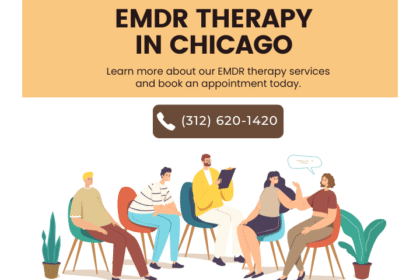Big life events can shake us. A divorce. The loss of a loved one. A career change. Retirement. A big move. Even changes we choose – like becoming a parent or leaving a toxic job – can still leave us feeling untethered.
You might ask: Why am I struggling so much? Shouldn’t I be happy?
This is where Life Transition Therapy comes in. It helps you understand and process what you’re feeling. It supports you through the storm of emotions and uncertainty that can follow major life changes. And it gives you tools to rebuild your sense of self in the aftermath.
In this blog, we’ll explore what therapy for life transitions is, why it’s so effective, and how it can help you heal and grow – even when everything around you feels unfamiliar.
What Is Life Transition Therapy?
Life Transition Therapy is a form of counseling designed to help people navigate significant changes in life. These might include:
- Ending or starting a relationship
- Losing a loved one
- Retiring
- Relocating
- Shifting careers
- Becoming a parent
- Graduating or aging into a new stage of life
It’s not just about talking – it’s about processing. With the support of a therapist, you begin to explore what’s changing, how it affects your identity, and how to manage the emotional weight of it all.
It’s also a way to build new habits, make meaningful choices, and find direction again – even if you feel completely lost.
Why Life Transitions Hit So Hard?
Loss of Familiar Identity
When life changes, we often lose a part of ourselves. You might no longer be “a spouse,” “a full-time employee,” or “someone who lives near family.” That shift can bring on deep grief.
Uncertainty About the Future
Managing uncertainty is one of the hardest parts of any transition. We crave structure. When that’s taken away, anxiety often fills the gap. Questions swirl:
What now? What if I made the wrong choice? Will I ever feel like myself again?
Emotional and Physical Stress
Even good changes can be stressful. Our nervous systems react to disruption with tension, insomnia, and emotional overwhelm. Without support, it’s easy to get stuck in survival mode.
Who Can Benefit from Life Transition Therapy?
Life Transition Therapy isn’t only for people in crisis. It’s for anyone feeling stuck, overwhelmed, or confused during a life shift. You might benefit if you’re experiencing:
- Divorce or separation
- Career change or job loss
- Retirement
- Grief and loss
- Relocation stress
- Empty nest or aging milestones
- Chronic illness diagnosis
- Gender, identity, or lifestyle transitions
Even if you don’t know what’s wrong – but something feels off – therapy can help you figure it out.
How Does Life Transition Therapy Work?
Step 1: Creating Safety
Therapists begin by helping you feel safe and seen. There’s no rush. No judgment. Just space to talk and feel without pressure.
Step 2: Exploring Your Emotional Landscape
You’ll unpack what the transition means for you personally. Not just what happened, but what you’ve lost, what you fear, and what you hope for.
Emotions like grief, guilt, regret, relief, and fear are common. Therapy helps you name them – and understand they’re all valid.
Step 3: Rebuilding Your Identity
When roles or relationships fall away, it can feel like we’ve lost ourselves. Therapy supports you as you rediscover who you are now. This might involve:
- Exploring new values or goals
- Letting go of outdated roles
- Defining what matters most to you moving forward
Step 4: Developing New Tools
Coping with transitions requires emotional tools. You might learn:
- Grounding exercises for anxiety
- Mindfulness techniques
- Healthy ways to manage anger or sadness
- How to communicate during difficult times
- How to set gentle goals for rebuilding routine
The Power of Emotional Support During Life Changes
Transitions can be lonely. Friends may not understand. The family might not know how to help. That isolation adds to the stress.
Therapy offers consistent, compassionate support – someone who walks alongside you, not ahead or behind. Your therapist isn’t there to fix you, but to help you find your own footing.
Common Life Transitions Therapy Can Help With
Navigating Divorce or Separation
Divorce isn’t just the end of a relationship – it can feel like the end of your identity. A therapist helps you grieve, process, and move toward healing without shame.
Career Transition Counseling
Leaving or losing a job can feel like losing a part of yourself. Whether you’re burned out, laid off, or changing careers, career transition counseling helps you regain confidence and purpose.
Grief and Loss Therapy
Loss touches every part of life. Whether it’s a person, pet, or chapter of life, therapy helps you move through grief at your own pace.
Retirement Adjustment Support
Retirement sounds like freedom, but often brings emptiness, loss of purpose, or even depression. Therapy supports a thoughtful, fulfilling shift into this new stage.
Relocation Stress Management
Relocating can bring excitement and exhaustion. Whether you moved for work, family, or a fresh start, therapy helps you cope with isolation and root yourself in the unfamiliar.
Building Resilience Through Life Transition Therapy
Emotional Awareness
Learning to notice and name what you’re feeling creates emotional space. You begin to respond, not react.
Stress Management Therapy
By building habits like breathwork, movement, and sleep hygiene, you reduce anxiety and help your body recover from stress.
Personal Growth During Transitions
Change challenges you. But it also opens space for new growth. In therapy, you might rediscover creativity, reconnect with old dreams, or explore your identity in deeper ways.
Finding Purpose After Change
What do I want now? What matters most? Therapy helps you answer these questions, especially after changes that forced you to reevaluate everything.
Therapy vs. Life Coaching for Transitions
Life coaching can help with motivation and planning. But therapy goes deeper. It helps you heal emotionally, explore old wounds, and address fears or traumas that coaching often skips.
If you’re grieving, anxious, or emotionally stuck, a therapist trained in adjustment counseling is likely the best choice.
When to Seek Help
You don’t need to “wait until things get worse.” Consider therapy if:
- You feel stuck in sadness, fear, or regret
- You don’t recognize yourself anymore.
- You’re having trouble sleeping, eating, or focusing.
- You’re struggling to make decisions.
- You want to support rebuilding confidence and direction.
Change doesn’t have to be handled alone. Therapy can be your steady hand.
How to Choose the Right Therapist for Transitions
Look for Experience with Life Changes
Search for someone who lists life transition therapy, grief counseling, or career coaching in their specialties.
Consider Fit and Approach
Therapists vary. Some use cognitive-behavioral therapy (CBT), while others use narrative or mindfulness-based approaches. Choose someone whose style resonates with you.
Practical Details
Think about location, pricing, or if you prefer online sessions. Many therapists now offer secure, HIPAA-compliant video therapy options.
Can Life Transitions Affect Mental Health?
Absolutely. Even when change is expected or wanted, it can trigger anxiety, depression, or panic.
Mental health during life transitions often declines temporarily. That doesn’t mean something is wrong with you. It means your system is responding to stress and uncertainty.
Getting help early can prevent deeper emotional struggles later.
How Long Does Life Transition Therapy Take?
There’s no timeline. Some people go weekly for a few months. Others check in every few weeks over a year.
Your therapist will work with you to decide what fits your needs and goals. The goal isn’t just to “feel better,” but to grow stronger and wiser through the change.
Conclusion: This Chapter Is Hard – But It’s Not the End
If you’re feeling lost right now, that makes sense. You’ve been through something big. Maybe it was planned. Maybe it blindsided you. Either way, you’re human, and humans need support.
Denver Life Transition Therapy is about finding your way again. It’s about holding the pieces, naming the pain, and rebuilding with intention.
Whether you’re grieving, uncertain, lonely, or hopeful but scared, you’re not alone.
Therapy won’t erase the change. But it will help you face it with strength, with clarity, and with the belief that something good can still come next.
You’re allowed to struggle. You’re allowed to need help. And you’re allowed to begin again.





